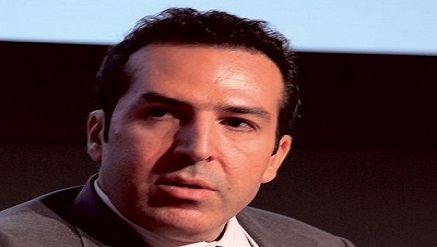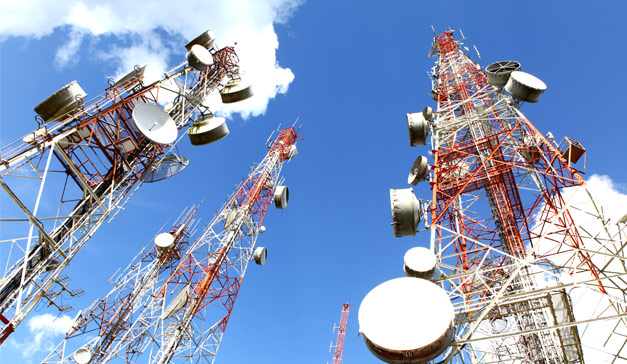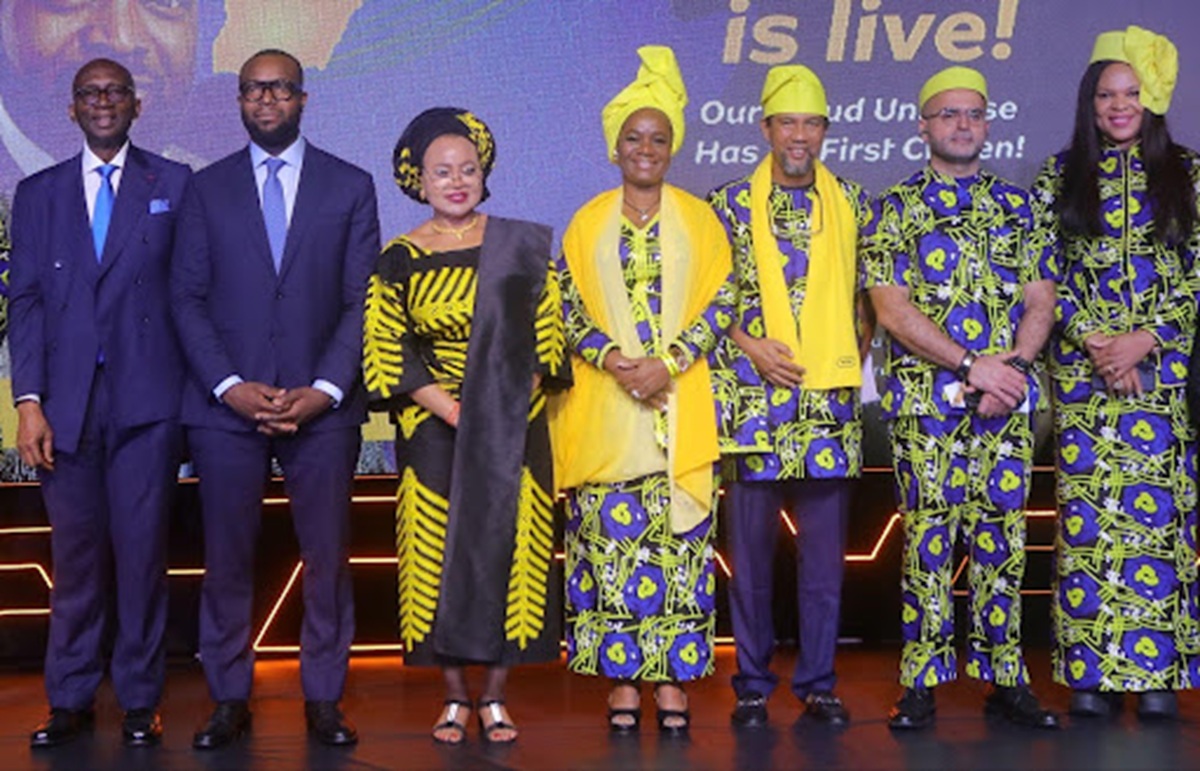Telecom
Darwish, Nigerian Billionaire Tycoon Raises $2.6Bn for Telecom Towers

IHS Towers, a Nigerian phone tower company founded by Issam Darwish, Lebanese-Nigerian businessman has raised $2 billion in equity and $600 million in debt in one of the largest equity fundraising exercises by an African company in recent times.
IHS, the continent’s largest tower company, will use the money to finance infrastructure spending and recently agreed acquisitions, according to a company statement on Monday.
It said the equity funding was from new and existing shareholders, but did not provide further details.
The loan facility is split into two parts: a seven-year tranche of $500 million denominated in U.S. dollars and an eight-year tranche of $100 million in Nigerian naira.
Ecobank, Standard Chartered, Standard Bank, Investec and the World Bank’s International Finance Corporation (IFC) participated in the loan, Darwish told Reuters.
“This is the largest equity raising by a private entity for the past 7-8 years in Africa — you’ve had mining, banks and now telecom infrastructure as a standalone sector is commanding this much interest from the international markets,” said Darwish.
“This sends the right signal, it’s saying the international investor community believes in Africa and they’re putting a substantial amount of money behind that.”
Building and maintaining mobile communications towers in Africa is typically more expensive than in other regions because of security costs and electricity shortages, while revenue per user is often lower.
That has prompted many mobile operators to sell or lease towers to specialist companies such as IHS, which can reduce building and maintenance costs by hosting multiple tenants — mobile operators and Internet providers — on the same towers.
In September, South Africa’s MTN agreed to sell 9,151 mobile towers in Nigeria to a new joint venture with IHS in a deal MTN said would cut its costs and boost its call and data capacity in Africa’s most populous country.
That was MTN’s fifth tie-up with IHS following deals in Ivory Coast, Cameroon, Rwanda and Zambia.
IHS in August agreed to buy and lease back 2,136 towers from Etisalat Nigeria, a unit of Abu Dhabi’s Etisalat.
Darwish said a “substantial part” of the money IHS has raised would go towards paying for its recent acquisitions, with the remainder spent on boosting its infrastructure in the five countries it operates in.
He said IHS would complete the two acquisitions soon, with one set to be concluded in a few weeks and the other shortly after that, although he declined to provide more details.
Darwish predicted demand for broadband would drive growth in Africa’s telecoms sector.
“The size of the middle class in Africa is now roughly one-third (of the population) -– 15-20 years ago it was 10 percent or less,” said Darwish.
“Broadband penetration is extremely low, less than 10 percent, so the potential is massive and you need towers to service that.”
He predicted Africa could need 200,000-300,000 mobile towers over the next 10 years to meet future broadband demand, including up to 40,000 in Nigeria alone.
IHS may raise further debt before the end of 2015.
“Things keep growing and evolving for us so we may come back to the market very soon,” added Darwish.
Telecom
Operators Seek Action Over Persistent Vandalization of Telecommunications Infrastructure Across Nigeria

The Association of Licensed Telecommunications Operators of Nigeria (ALTON) has expressed deep concern over the increasing wave of vandalization and theft of telecommunications infrastructure across the country.

According to a statement signed by Engr. Gbenga Adebayo, chairman, ALTON, “since the Federal Government’s decisive interventions earlier this year to support industry sustainability, our members have committed unprecedented levels of investment in network optimization and capacity upgrades. New systems are being deployed, transmission equipment modernized, power systems overhauled, and thousands of kilometers of fiber optic networks currently being laid and expanded.
“Our industry has not seen this scale of investment in recent years. We are working round the clock to improve the quality of service nationwide and we cannot afford these setbacks.
“Unfortunately, between May and July, 2025, multiple incidents of vandalism were recorded across cell sites in Rivers, Ogun, Osun, Imo, Kogi, Ekiti, Lagos, Federal Capital Territory Abuja and many other states.
“These acts of sabotage have significantly disrupted network services, causing widespread connectivity blackouts leading to degradation of services and severely impacting millions of subscribers”.
He noted that, the affected infrastructure, primarily belong to ALTON members, as well as other network operators and those who depend on operators for connectivity.
He said identified critical components targeted to include; power cables, rectifiers, fiber optic cables, feeder cables, diesel generators, batteries, and solar systems are vandalized and stolen from active sites.
“These are not mere materials, but they are the backbone of our digital economy, security systems, and national communications grid.
“We are alarmed at the frequency, intensity, and geographical spread of these incidents. States such as Delta, Rivers, Cross Rivers, Akwa Ibom, Ogun, Ondo, Edo, Lagos, Kogi, FCT, Kaduna, Niger, Osun, Kwara and Federal Capital Territory, Abuja have recorded the highest number of attacks on telecom infrastructure. These attacks have led to prolonged downtimes, network congestion, widespread blackouts, and degradation of service quality.
The public he said, must be reminded that telecommunications infrastructure is classified as Critical National Infrastructure (CNI) under the National Security framework. This classification is backed by Federal Government Gazette No. 133, Volume 108, dated 17th March 2021. Vandalism, sabotage, or illegal possession of these assets is a serious criminal offense with grave consequences.
ALTON expressed concerned about the rising market for stolen telecom equipment, such as:
– Power Cables, Power rectifiers, which are stolen from base station and sold into open markets
– Batteries which are stolen from base stations and sold for home and office inverters.
– Solar panels that are stripped from telecom sites and resold to unsuspecting households.
– Diesel fuel being siphoned from sites and traded on the grey market.
“We urge the public to be vigilant and refrain from purchasing suspicious items. If you buy stolen telecom equipment, you are not just complicit you are part of the crime.
We appeal to every Nigerian to please join us in the fight against the vandalization of telecom infrastructure.
“These assets serve us all, they enable our banking systems, security infrastructure, emergency response, education, health services, and the very platforms that power daily communication. An attack on telecom infrastructure is an attack on our economy and our security.
“A second, recurring and deeply worrying issue is the widespread damage to underground fiber optic cables caused by road construction and related civil infrastructure projects along major highways and urban roads. These activities have led to significant service outages and financial losses,” he added.
ALTON called on: – the Office of the National Security Adviser (ONSA), the Inspector General of Police, the Director General, Department of State Services (DSS), and the Commandant General of the Nigeria Security and Civil Defence Corps (NSCDC)
to immediately deploy the necessary resources to protect telecommunications infrastructure and prevent a total breakdown of communications across the country.
“We commend the Nigerian Communications Commission (NCC) for its proactive efforts in safeguarding national telecom infrastructure, particularly through the creation of a dedicated reporting portal.
“This initiative empowers citizens to play an active role in protecting critical assets by reporting incidents of vandalism or suspicious activity via protect@ncc.gov.ng or by dialing 622.
“Such forward-thinking measures are vital to ensuring the resilience and security of our communications network. This is a desperate and urgent hour. The industry cannot fight this battle alone. We need coordinated national action by the security agencies, the government at all levels, regulators, the media, civil society, and the public. Our national security, economic stability, and digital future depend on it,” the statement noted.
Telecom
MTN’s $150m Data Hub Gets Government Nod for Advancing Digital Economy

At the unveiling of MTN Nigeria’s Dabengwa Data Centre and Cloud Launch in Ikeja, Lagos, recently, Dr. Bosun Tijani, Honourable Minister of Communications, Innovation and Digital Economy, described the facility as an investment aligned with President Bola Tinubu’s agenda to grow Nigeria’s digital economy.

Tijani, who graced the event, commended MTN Nigeria for its continued investment in the country, noting that the new data centre – estimated to cost around $150 million – is the kind of technological infrastructure that supports the $1 trillion economy the current administration aims to build.
“An investment like this, the one we are here to launch, offers a platform for our young people to thrive,” Tijani said. He continued: “Enterprise-grade infrastructure like this, on our soil, gives startups, developers, and digital creators the ability to build and scale from Nigeria to the world. With this facility, MTN is reinforcing its position as Nigeria’s digital backbone.
The data centre, named after the late Sifiso Dabengwa, a former CEO of MTN Nigeria and later Group Chief Operating Officer before his passing in September last year is being hailed as Nigeria’s largest prefabricated modular data centre It will deliver 4.5 MW in phase 1, with an additional 4.5 MW to be delivered in phase 2, which is expected to be completed soon.
According to the Minister, the MTN Data Centre will contribute to growing Nigeria’s economy by “unlocking productivity, hiring enterprise, and driving diversification through technological innovation and inclusion.”
“For this reason, if you don’t mind,” he added, “let’s rise and give a round of applause to MTN for their consistent commitment to Nigeria. The administration of President Bola Tinubu recognises that we cannot build a modern, diversified economy without modern infrastructure – both physical and digital.”
In his welcome address, Karl Toriola, CEO of MTN Nigeria, thanked the Federal Government for its continued support and reiterated the company’s commitment to long-term investment in the country.
“We are committed to building locally managed, globally competitive digital platforms that will enable businesses to scale faster and engage more people in wide-ranging research and development.
“At MTN, we believe everyone, particularly Nigerians and Africans, deserves the benefits of a modern, connected life. We continue to push boundaries to make the humanly impossible, conceivable, feasible, and ultimately possible,” he said.
The unveiling ceremony drew other stakeholders, policymakers, and members of the public sector, all of whom applauded MTN’s bold move, not just as a telecom giant, but as a leader in Nigeria’s tech ecosystem, providing a platform to accelerate digital transformation and innovation.
Dr. Aminu Maida, Executive Vice Chairman and CEO of the Nigerian Communications Commission (NCC), represented by Engr. Babagaba Digima, Deputy Director, New Media and Information Security Department, said: “Today marks a significant milestone in Nigeria’s digital sovereignty and technological independence. The infrastructure we celebrate today embodies our collective vision of a digitally empowered Nigeria.”
Commending MTN’s leadership in digital innovation, Engr. Digima noted, “The Commission remains committed to creating an environment that supports innovation while ensuring the highest standards of cybersecurity, data protection, and robust internet infrastructure. We will continue to work closely with operators to ensure that the deployment of critical infrastructure meets the high standards our digital economy deserves.
Lagos State Governor, Babajide Olusola Sanwo-Olu, represented by Barr. Bimbola Salu-Hundeyin, Secretary to the State Government, said the Dabengwa Sifiso Data Centre “not only signifies MTN’s unwavering commitment to investing in Nigeria’s digital infrastructure but also reinforces the strategic importance of Lagos as a technology and innovation hub for the nation.”
“As we all know, data is the new oil, and cloud technology is the engine that drives it. With its Tier III facilities, MTN is raising the bar for secure, scalable, and efficient enterprise services, critical enablers for businesses, public services, and national as well as multinational corporations alike,” she said.
With its bold investment in infrastructure, MTN Nigeria is not only shaping the future of connectivity but also laying the foundation for a more inclusive and innovation-driven economy, one where Nigerian talent and ideas can thrive on the global stage.
Telecom
Critical Telecom Infrastructure Under Siege as Vandalism and Theft Rise – ALTON

Association of Licensed Telecommunications Operators of Nigeria (ALTON) has decried the alarming rate of vandalism and theft of telecommunications infrastructure across the country.

The association, in a statement issued by its Publicity Secretary, Sir Damian Udeh, expressed deep concern over the increasing wave of sabotage in view of the disruptive impacts on network services, causing widespread connectivity blackouts and impacting millions of subscribers.
According to the group, the affected infrastructure does not totally belong to its members but to other mobile network operators (MNOs) and those who depend on them for connectivity.
It clarified: “Critical components such as power cables, rectifiers, fiber optic cables, diesel generators, batteries, and solar systems are vandalized and stolen from active sites.”
ALTON lamented that these acts of sabotage had led to prolonged downtimes, network congestion, widespread blackouts, and degradation of service quality.
The association listed the states with high frequency and intensity of attacks on telecom infrastructure as including Delta, Rivers, Cross Rivers, Akwa Ibom, Ogun, Ondo, Edo, Lagos, Kogi, FCT, Kaduna, Niger, Osun, Kwara, and Abuja recording the highest number of
It reminded the public that telecommunications infrastructure had been classified as Critical National Infrastructure (CNI) under the National Security framework and that vandalism remained a serious criminal offence with grave consequences for those engaging in the despicable acts.
ALTON, therefore, urged the public to recognize the severity of these incidents and the impact on the digital economy, security systems, national communications grid and the negative implications for national development.
It assured the public of its working tirelessly to improve the quality of service nationwide and called for urgent action by the governments, security agencies and the public to prevent the collapse of the nation’s telecommunications industry.

 E-Financial2 days ago
E-Financial2 days agoPalmPay Named Among CNBC and Statista’s World Top 300 Fintech Companies 2025

 News2 days ago
News2 days agoHCSF Describes Galaxy Backbone as a Strategic Partner in Civil Service Digitalization Reforms

 General News2 days ago
General News2 days agoMayor of London Commits to Deepening UK-Nigeria Ties in Tech, Creatives and Trade

 E-Financial2 days ago
E-Financial2 days agoFidelity Bank Champions Education in Nasarawa with CSR Project

 Telecom1 day ago
Telecom1 day agoOperators Seek Action Over Persistent Vandalization of Telecommunications Infrastructure Across Nigeria

 News2 days ago
News2 days agoFG Eyes 8,000MW Power Boost in 18 Months with Grid Overhaul

 General News1 day ago
General News1 day agoFirstBank Celebrates ₦1 Trillion Milestone in Instant Loans via AI-Powered Platforms

 Telecom1 day ago
Telecom1 day agoCritical Telecom Infrastructure Under Siege as Vandalism and Theft Rise – ALTON























